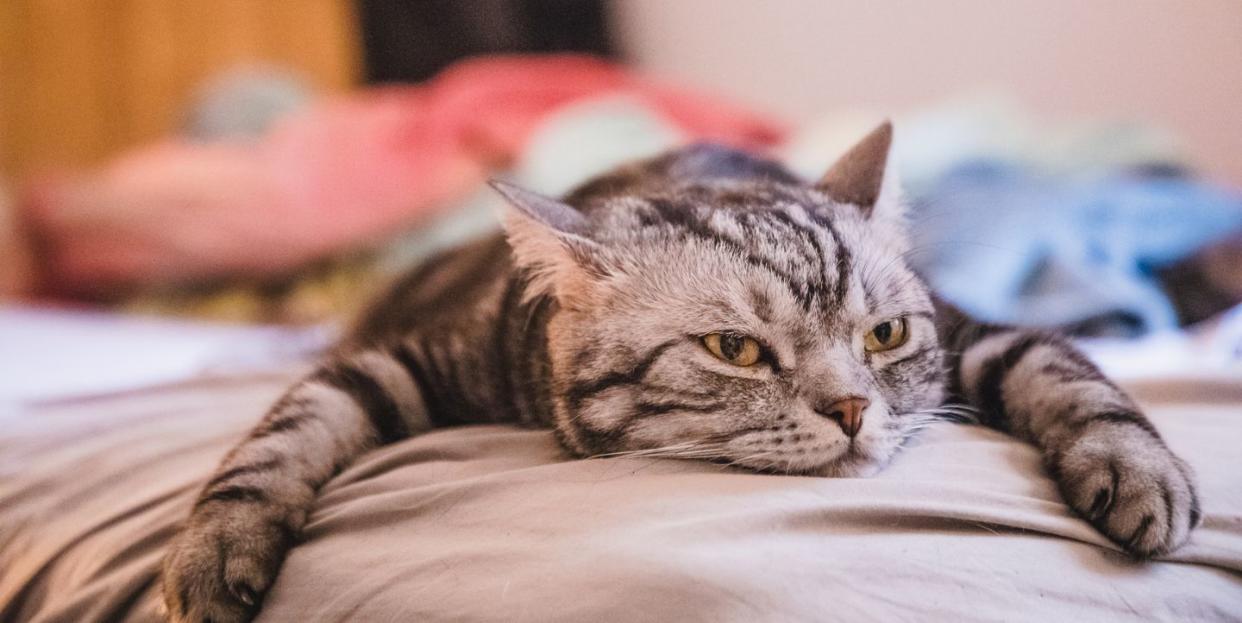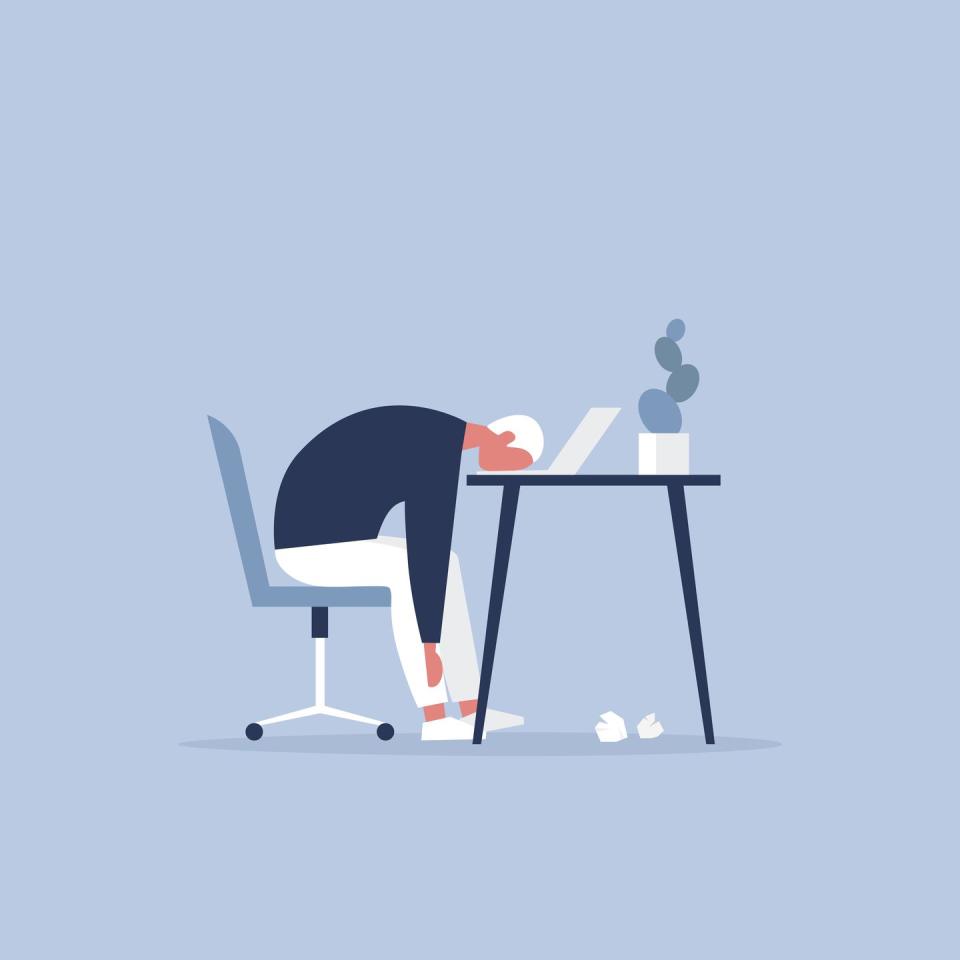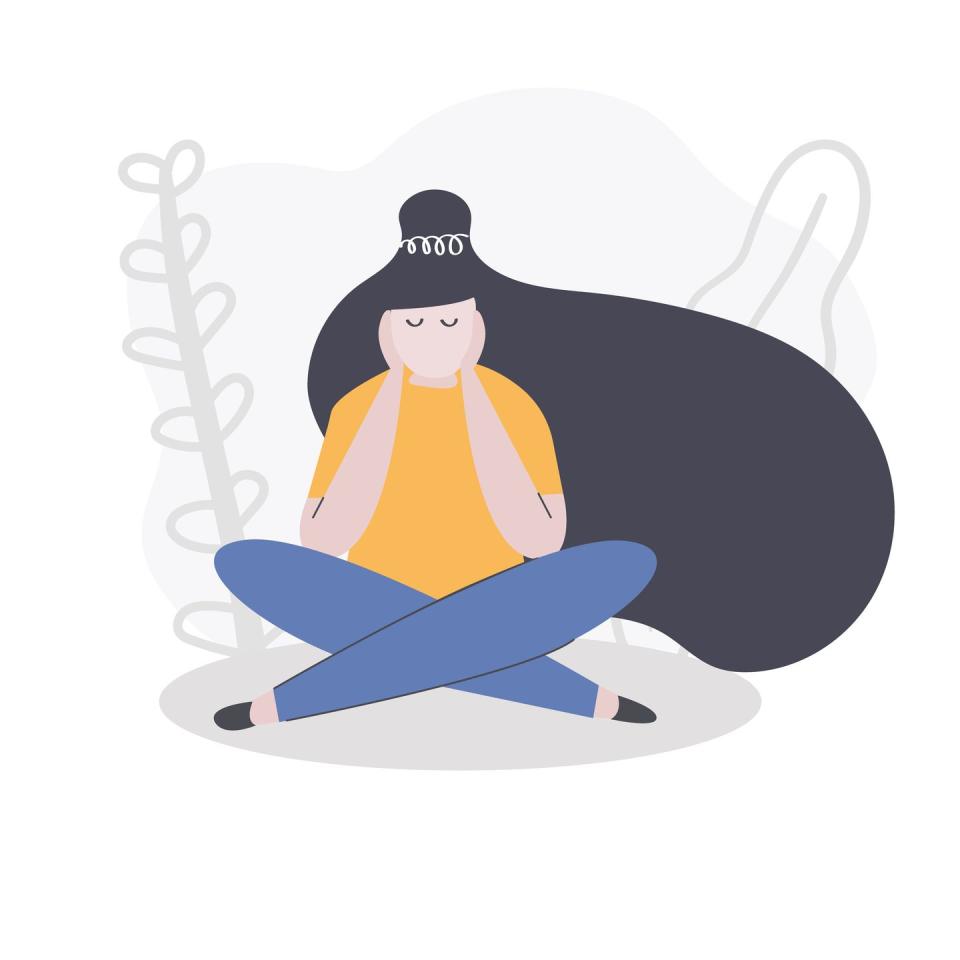Why Is It So Hard to Be Bored? The Uncomfortable Truth

As I found myself reaching for the rewind button for the third time on a podcast one morning, I paused. Why couldn’t I pay attention to what the speakers were saying? The information was engaging, but my mind kept wandering to my to-do list for the day. As I sipped my morning caffeine, I realized I actually fill my days with a lot of unnecessary noise.
I’ll tune into a podcast while I get ready in the morning, then play YouTube or more podcasts while I eat or do chores. If I’m not working, I’m constantly searching for the next opportunity, taking courses or networking online. My days are crammed full of background filler and tasks that may or not be productive.
However, cramming our days full can prevent us from reaping the benefits of boredom, according to Heather Lench, Ph.D., a psychologist specializing in boredom at Texas A&M University. A bit of boredom allows time and space to think and frees up brain space for creativity, daydreams and goals. It can even motivate us to try new things.
As a freelance writer, my job entails a lot of idea generation. I’ve noticed when I give myself space to just sit with my thoughts, creative ideas come more easily. In quiet moments, I come up with new story pitches left and right, and articles I’d been dragging out flow more smoothly. I’m also more likely to try new things.
It turns out I’m not the only one who realized how much staying busy throughout the day can impact my mental state. “When it comes to creativity, nothing kills it more than trying to force it,” says Kat Smith, founder and CEO of A Way Abroad.
Why we find boredom so uncomfortable
Boredom is an emotion that happens when you don’t feel anything else, Lench explains. When there’s no goal or activity we’re pursuing, no other feelings or emotions, we’re forced to think more broadly and be more imaginative. If we’re not doing or occupied by anything else, we’re prompted to either set goals or try new things, Lench says. However, she pointed out that if we fill this time with diversions such as phone games or social media, we miss out on any of the positives of letting ourselves get bored.
Chelsea Handasyde, a marketing communications manager, has seen this work firsthand. She lamented how she wishes she had more downtime to be bored at work since having space and downtime without anything else opens her mind and “is crucial for more explorative and creative problem-solving, and finding ideas that are outside the box or you need to dig a little deeper for.”
Studies have shown that the overwhelming majority of us find being alone to sit with our thoughts very uncomfortable. “Most people seem to prefer to be doing something rather than nothing, even if that something is negative,” says a study conducted by psychologists at Harvard and the University of Virginia. The study required participants to sit in a room alone for 6 to 15 minutes without any belongings or technology and to occupy themselves “with their thoughts.” The subjects then had to report back on how it made them feel, and most said they did not enjoy the experience much at all. In fact, the majority elected to receive an electric shock administered by pressing a button, rather than sit with their thoughts the entire time.
“Engaging in intentional thought can be hard, even if it is thinking about something enjoyable or something positive,” says Gasper. For many, distractions like social media (or even electric shocks) are just easier and less painful than sitting with our own thoughts.
This is why people like Smith and I tend to crowd our days, often with technology. Even before it infiltrated every facet of life, our own minds have always been unsettling places. But that’s a feature, not a bug.

Boredom enables creativity
Lench put it this way: Think of curiosity as being the carrot or incentive to do or think about something while boredom is a stick that forces us to do so. It’s uncomfortable so we can grow, as boredom and space to think allows time and energy for new ideas, tasks and thoughts. But people are usually resistant to that discomfort so we take the path of least resistance — and distract ourselves with mindless tasks instead.
Opportunities to do that abound. Devices such as phones and tablets are actually “tricks to make us feel like we’re accomplishing goals,” Lench added. Take, for example, a game like Candy Crush, which can make our brains feel like they’re accomplishing a goal, when we’re actually not making any sort of meaningful progress in the real world. In these cases, boredom isn’t doing what it’s supposed to do, which is “moving us towards new challenges and life experiences,” according to Lench.
It can be difficult to find time to be bored
Handasyde says that, since being promoted to manager, her professional day-to-day is often too busy to allow time for deep, creative thinking. Outside of work though, she tries to build it in. She often wonders what neighbors think of her “sitting on the veranda just staring out at the trees. Even when I lay on the couch without a book or phone in hand and the TV off, my partner asks 'are you OK?'”
We all differ in our capacity to be bored, says Gasper, and our individual boredom tolerance is dependent on many life factors like job, family situation, age, marital status and personality. It’s also important to acknowledge that for a lot of people, boredom is a huge privilege they cannot afford. Single parents would probably love the space to just be bored but often don't have the luxury. Additionally, those working in a caregiver capacity, healthcare or service industries rarely have a moment to just breathe and, as a result, have some of the highest stress levels, according to a recent survey from the Occupational Information Network.
How to become more comfortable with boredom
But for those of us who do have time to sit still, it's beneficial to do so. Lench pointed out that people who believe boredom to be helpful are more likely to engage meaningfully with it and open their minds to boundary-pushing activities.

Once we recognize the benefits of boredom, we can begin to maximize that mental down time. For example, Handasyde schedules time sans technology, usually in the form of camping or hiking. "We’ve become so accustomed to having all the information in the world at our fingertips that we spend less and less time trying to come up with creative solutions or thoughts ourselves. Tech will show you what already exists and may de-motivate [you to be creative],” Handasyde says. “You don't want what's out there already to cloud your thinking on what could be.”
Since she finds sitting still difficult, Smith said she will often come up with her best ideas on showers and walks. That way, she’s doing something more or less mindless that won’t completely distract her from her thoughts. “When I walk, it gives my brain just the breathing room it needs to create,” she says. And her method has a scientific basis: Research has shown a correlation between everyday exercise and creativity according to a study in the British Journal of Sports Medicine.
“Boredom is an unpleasant experience for a reason,” Gasper explains.“It tells us something about how we are experiencing the situation and can motivate us to change it.” The more comfortable we can get with our inner selves, the more we will have to offer the world and our loved ones. So the next time you find yourself reaching for your phone or turning on the TV in a still moment, reconsider and just sit tight. The thoughts or realizations you have instead might just change the trajectory of your day — or life.
You Might Also Like

